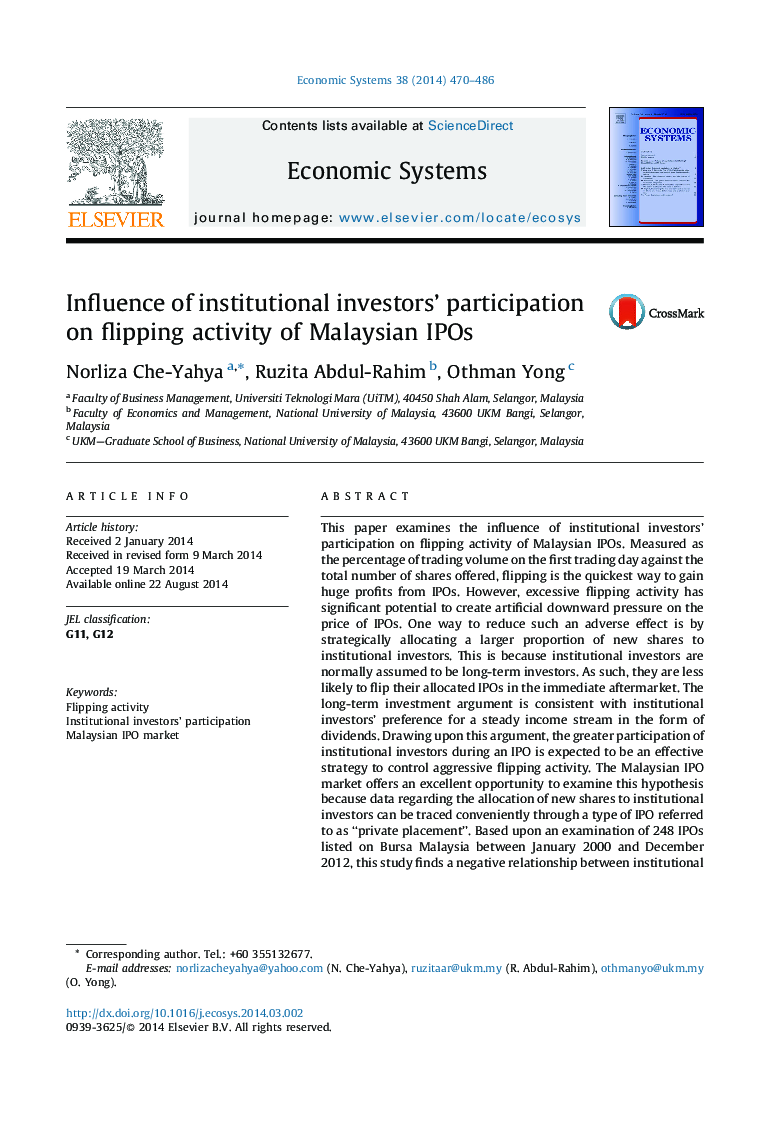| کد مقاله | کد نشریه | سال انتشار | مقاله انگلیسی | نسخه تمام متن |
|---|---|---|---|---|
| 5056481 | 1371637 | 2014 | 17 صفحه PDF | دانلود رایگان |
- This study examines the influence of institutional investors' participation on flipping activity of Malaysian IPOs.
- It finds a negative relationship between institutional investors' participation and flipping activity.
- The results support the demand and supply theory that institutional investors have a preference for the long-term growth of shares.
- The role of institutional investors' participation also stems from the signaling theory perspective.
- This study documents a significant association between three other control variables and flipping activity; initial return, supply of IPOs and lock-up period.
This paper examines the influence of institutional investors' participation on flipping activity of Malaysian IPOs. Measured as the percentage of trading volume on the first trading day against the total number of shares offered, flipping is the quickest way to gain huge profits from IPOs. However, excessive flipping activity has significant potential to create artificial downward pressure on the price of IPOs. One way to reduce such an adverse effect is by strategically allocating a larger proportion of new shares to institutional investors. This is because institutional investors are normally assumed to be long-term investors. As such, they are less likely to flip their allocated IPOs in the immediate aftermarket. The long-term investment argument is consistent with institutional investors' preference for a steady income stream in the form of dividends. Drawing upon this argument, the greater participation of institutional investors during an IPO is expected to be an effective strategy to control aggressive flipping activity. The Malaysian IPO market offers an excellent opportunity to examine this hypothesis because data regarding the allocation of new shares to institutional investors can be traced conveniently through a type of IPO referred to as “private placement”. Based upon an examination of 248 IPOs listed on Bursa Malaysia between January 2000 and December 2012, this study finds a negative relationship between institutional investors' participation and flipping activity. This result lends strong support to the argument concerning the effectiveness of institutional investors' participation in controlling flipping activity in the Malaysian IPO market.
Journal: Economic Systems - Volume 38, Issue 4, December 2014, Pages 470-486
